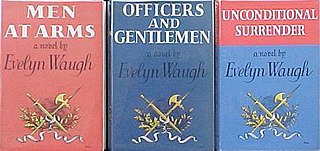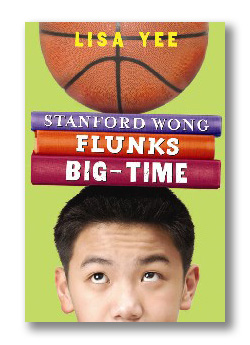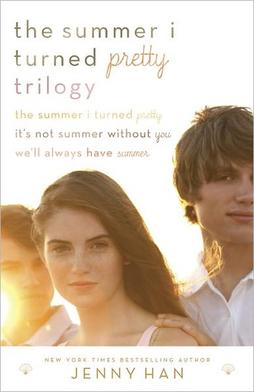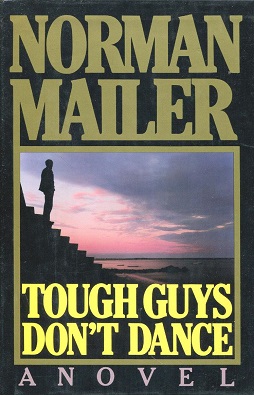
Slaughterhouse-Five, or, The Children's Crusade: A Duty-Dance with Death is a 1969 semi-autobiographic science fiction-infused anti-war novel by Kurt Vonnegut. It follows the life experiences of Billy Pilgrim, from his early years, to his time as an American soldier and chaplain's assistant during World War II, to the post-war years. Throughout the novel, Billy frequently travels back and forth through time. The protagonist deals with a temporal crisis as a result of his post-war psychological trauma. The text centers on Billy's capture by the German Army and his survival of the Allied firebombing of Dresden as a prisoner of war, an experience that Vonnegut endured as an American serviceman. The work has been called an example of "unmatched moral clarity" and "one of the most enduring anti-war novels of all time".

Richard Weedt Widmark was an American film, stage, and television actor and producer.

Studs Lonigan is a novel trilogy by American author James T. Farrell: Young Lonigan (1932), The Young Manhood of Studs Lonigan (1934), and Judgment Day (1935). In 1998, the Modern Library ranked the Studs Lonigan trilogy 29th on its list of the 100 best English-language novels of the 20th century.

Lucy Knight is a fictional character In the NBC television series ER, portrayed by actress Kellie Martin. The character was part of the show for the fifth and sixth seasons. When she was first introduced on ER, Dr. Doug Ross called her a "by the book" medical student. Kellie Martin's image was removed from the main cast opening credits in the 15th episode of season 6.

The Sword of Honour is a trilogy of novels by Evelyn Waugh which loosely parallel Waugh's experiences during the Second World War. Published by Chapman & Hall from 1952 to 1961, the novels are: Men at Arms (1952); Officers and Gentlemen (1955); and Unconditional Surrender (1961), marketed as The End of the Battle in the United States and Canada.

James Gordon Farrell was an English-born novelist of Irish descent. He gained prominence for a series of novels known as "the Empire Trilogy", which deal with the political and human consequences of British colonial rule.

James Thomas Farrell was an American novelist, short-story writer and poet.
Edward Francis Jemison, Jr. is an American film and television actor. He is known for his roles as Livingston Dell in the Ocean's film trilogy and Mickey Duka in The Punisher, as well as the television series Hung, iZombie and Chicago Med.

Can't Buy Me Love is a 1987 American teen romantic comedy film directed by Steve Rash, starring Patrick Dempsey and Amanda Peterson in a story about a nerd at a high school in Tucson, Arizona, who gives a cheerleader $1,000 to pretend to be his girlfriend for a month. The film takes its title from a Beatles song of the same title.

In the Land of Women is a 2007 American romantic comedy-drama film directed and written by Jon Kasdan. The film premiered in the United States on April 20, 2007.
Hairstyles of the Damned is a coming-of-age novel and the third book by Chicago author Joe Meno. Released by Punk Planet Books in 2004, it has sold over 80,000 copies in ten printings. It has been optioned for film by Focus Features.

Men at Arms is a 1952 novel by the British novelist Evelyn Waugh.

Officers and Gentlemen is a 1955 novel by the British novelist Evelyn Waugh.

Stanford Wong Flunks Big-Time is a 2005 children's novel by Lisa Yee. Narrating Stanford's point of view in Millicent Min, Girl Genius and So Totally Emily Ebers, it focuses on Stanford's eventful summer after he learns his lack of academic interest leads him to failing his English class and attending summer school. A basketball star, Stanford finds himself at odds at having to keep his summer school secret from his friends and teammates along with hiding the fact he's being tutored by the infamous Millicent Min. As Stanford struggles to deal with changes in his life, such as his grandmother leaving his home, the rest of the novel finds Stanford attempting to adapt to these changes along with dealing with problems involving friendship, family tensions, and first love.

Chicago literature is writing, primarily by writers born or living in Chicago, that reflects the culture of the city.

The Summer I Turned Pretty is a trilogy of young adult romance novels written by American author Jenny Han, and published by Simon & Schuster. The series includes The Summer I Turned Pretty (2009), It's Not Summer Without You (2010), and We'll Always Have Summer (2011).
The Young Manhood of Studs Lonigan is a 1934 novel by James T. Farrell, and the second part of Farrell's trilogy featuring the character William "Studs" Lonigan. This novel covers about 12 years in Studs Lonigan's life, from 1917 through 1928.
Judgment Day is a 1935 novel by James T. Farrell. It is the third and longest installment of Farrell's trilogy based on the short, unhappy life of William "Studs" Lonigan.

Tough Guys Don't Dance (1984) is a noir thriller and murder mystery novel by American writer Norman Mailer reminiscent of the works of Dashiell Hammett, Mickey Spillane, and Raymond Chandler. The novel was written in only two months in order to fulfill a contractual obligation. The book was adapted into a film, directed by Mailer, in 1987.

Lace curtain Irish and shanty Irish are terms that were commonly used in the 19th and 20th centuries to categorize Irish people, particularly Irish Americans, by social class. The "lace curtain Irish" were those who were well off, while the "shanty Irish" were the poor, who were presumed to live in shanties, or roughly built cabins.















